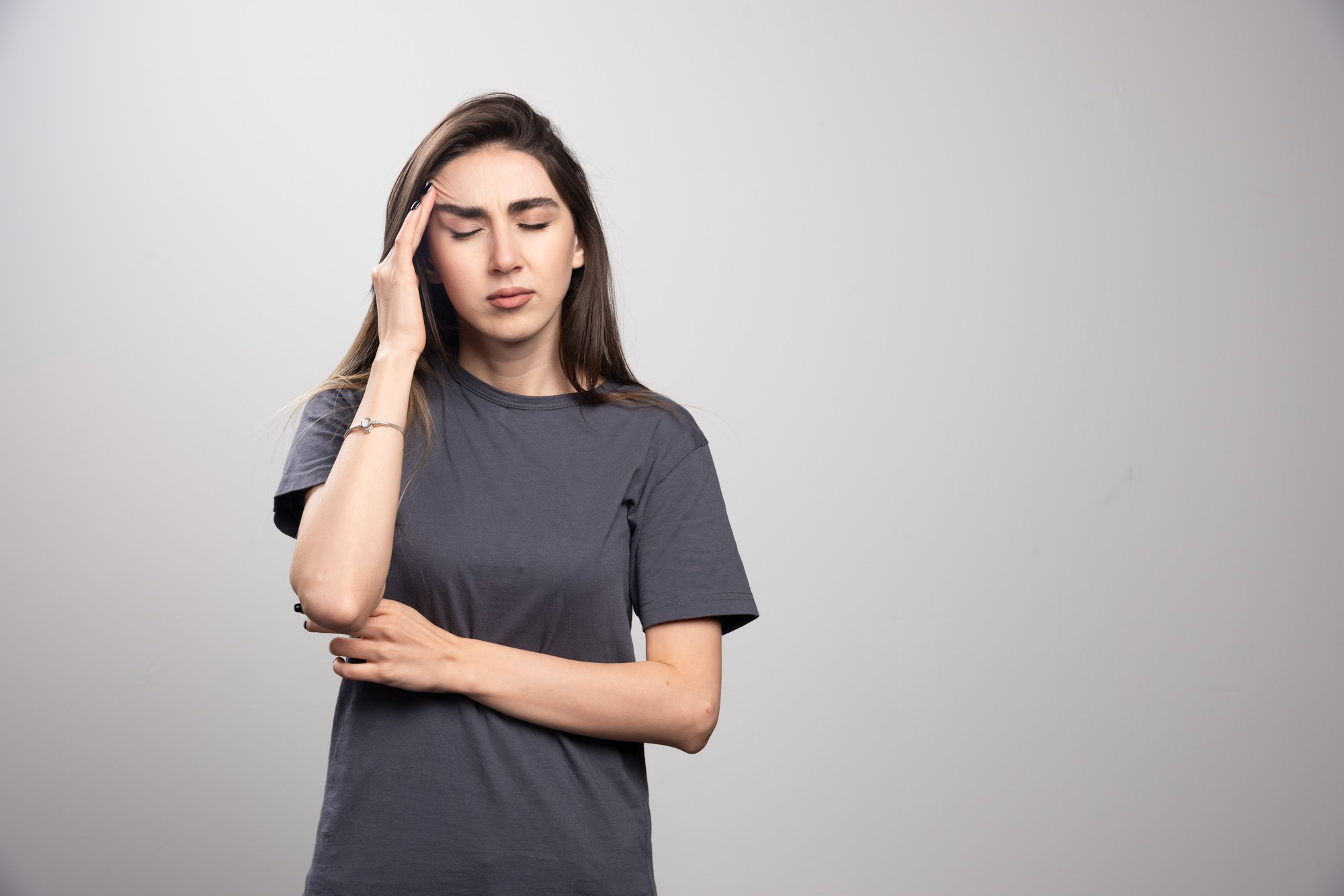What Is Giddiness?
Giddiness refers to feelings of unsteadiness, lightheadedness, or a sensation that the surroundings are spinning. It can be accompanied by nausea or vomiting. While often harmless, persistent or recurring giddiness may point to underlying health problems, including neurological conditions or heart issues.
Types of Giddiness:
- Presyncope: This is the feeling of being on the verge of fainting, where the individual feels weak but doesn’t lose consciousness.
- Disequilibrium: Unsteadiness and balance issues, often coupled with spatial disorientation, leading to the feeling of impending fall.
- Vertigo: A false sensation of motion or spinning, making it difficult to stay steady while walking, sitting, or even lying down.
Causes of Giddiness:
Giddiness can result from various factors, including:
- Inner Ear Issues:
- Benign Paroxysmal Positional Vertigo (BPPV): A brief spinning sensation due to changes in head position.
- Vestibular Neuritis: Inflammation of the vestibular nerve causing persistent vertigo.
- Meniere’s Disease: An excess of fluid in the inner ear causing vertigo and hearing loss.
- Circulatory Issues:
- Low Blood Pressure (Orthostatic Hypotension): A drop in blood pressure when standing up.
- Poor Circulation: Caused by heart problems like arrhythmia, heart attacks, or transient ischemic attacks (TIA).
- Neurological Conditions:
- Conditions such as Parkinson’s disease and multiple sclerosis can lead to unsteady balance.
- Medications: Side effects from medications like antidepressants, antihypertensives, or tranquilizers can cause dizziness.
- Anxiety and Stress: Panic attacks or anxiety disorders can cause episodes of dizziness or lightheadedness.
- Other Causes:
- Low Iron or Blood Sugar Levels (Anemia or Hypoglycemia)
- Dehydration and Overexertion
Symptoms of Giddiness:
- Lightheadedness or faintness
- A false perception of spinning or motion (vertigo)
- Unsteadiness or loss of equilibrium
- Headache or constant pressure in the head
- Weakness or fatigue
- Nausea or vomiting
These symptoms can be triggered by activities such as walking, standing, or tilting the head. The episodes can last from a few seconds to several days and might recur intermittently.
Risk Factors for Giddiness:
- Inner Ear Disorders: Those with ear problems are more likely to experience dizziness.
- Medications: Elderly individuals on certain medications like sedatives or antihypertensives are more prone to dizziness.
- Previous Dizziness Episodes: Those who have experienced dizziness before are at higher risk of recurrence.
- Dehydration and Physical Exertion: Strenuous activities or dehydration can trigger dizziness.
For investigating giddiness, healthcare providers use a tailored approach involving several diagnostic tests:
Essential Diagnostic Tests for Giddiness include:
- Audiometric Tests: To evaluate inner ear functions.
- VNG or ENG: To assess vestibular health and balance.
- Blood Tests: For detecting anemia, infections, and metabolic issues.
- Blood Pressure Tests: To identify circulatory problems like orthostatic hypotension.
- ECG: To check for cardiac rhythm issues.
- MRI or CT scans: To rule out neurological causes.
Testing Approach:
- Initial Tests: Include blood tests, blood pressure, and ECG.
- Further Evaluation: VNG/ENG and imaging tests like MRI or CT if initial tests are inconclusive.
This strategic testing ensures accurate diagnosis and management of giddiness.
Treatment Options for Giddiness:
Treatment for giddiness depends on its underlying cause:
- Medications: To address dizziness, nausea, and vertigo.
- Physical Therapy: Balance exercises or vestibular rehabilitation to treat inner ear issues.
- Dietary Changes: For conditions like Meniere’s disease, a low-salt diet may help.
- Hydration: Rehydrating during episodes of dehydration-related dizziness.
- Lifestyle Changes: Managing stress and anxiety or learning to avoid dizziness triggers.
Managing Giddiness:
- Install hand grips in the bathroom to prevent falls during dizziness.
- Practice balance exercises like yoga or tai chi.
- Clear walking paths at home to avoid tripping over obstacles.
Complications of Giddiness:
Giddiness can increase the risk of accidents or falls, especially if it leads to loss of balance. It can also be dangerous if it prevents you from performing regular tasks like climbing stairs or walking, particularly in environments where external support is required.
When to See a doctor:
You should consult a doctor if you experience any of the following:
- Persistent headaches
- Chest pain or discomfort
- Difficulty breathing
- Numbness or paralysis in limbs
- Unexplained fainting or dizziness
- Slurred speech or confusion
- Difficulty maintaining balance
- Sudden changes in hearing
- Seizures or disorientation
Consult us for Giddiness Management:
If you’re experiencing persistent dizziness or any of the symptoms mentioned above, don’t hesitate to consult with our experienced doctors. We can help identify the root cause of your giddiness and provide the right treatment to alleviate your symptoms.
Frequently Asked Questions (FAQs):
1. Can Vitamin Deficiencies Cause Giddiness? Yes, low levels of Vitamin B12 can cause dizziness. A simple blood test can diagnose and treat this deficiency.
2. How Can Giddiness Be Managed with Diet? Eating smaller portions and avoiding sugary processed foods can stabilize blood glucose levels and prevent dizziness.
3. Does Everyone Experience Giddiness the Same Way? No, the severity and symptoms of giddiness can vary based on the underlying condition causing it.
